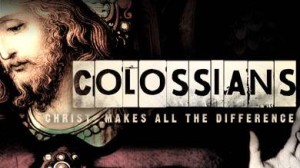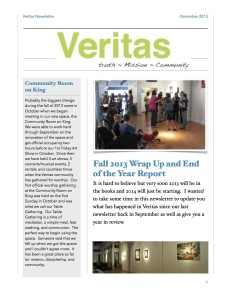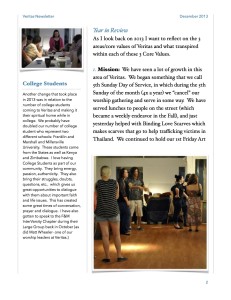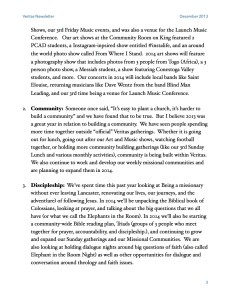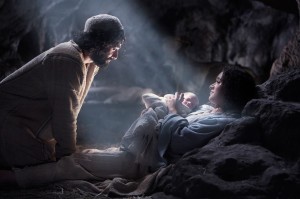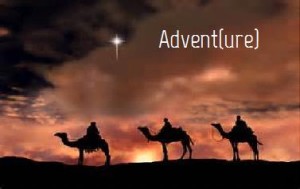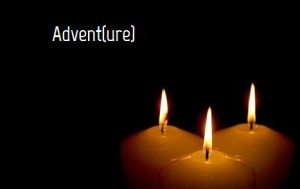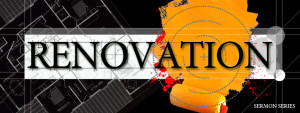Today we begin an 8 week series entitled Colossians Remixed, looking at and walking through the entire New Testament book of Colossians. Today we’ll be looking at the entire book overall, the recipients, the purpose of the letter, and what was happening in Colossae at the time of the letter that dictated the Apostle Paul writing this letter. And we’ll also spend some time looking at the first 14 verses of the first chapter of Colossians.
My hope and prayer over these next 8 weeks is that we will grow in the knowledge of his will, that we’ll walk worthy of the Lord, and that we’ll also increase in knowledge of God and in fruitfulness. My prayer also is that we’ll see that this letter (called an epistle which is just a fancy way of saying letter) to the church of Colossae will speak to our current reality. That we’ll see that this radical, subversive text written in the midst of the Roman Empire, has a lot to say to us about living a radical, subversive, Kingdom of God, missional life in the midst of our own empire.
But before we unpack the setting, recipients, purpose and what the first 14 verses might be saying to us today, let’s read Colossians 1:1-14. “Paul, an apostle of Christ Jesus by the will of God, and Timothy our brother, To God’s holy people in Colossae, the faithful brothers and sisters in Christ: Grace and peace to you from God our Father. We always thank God, the Father of our Lord Jesus Christ, when we pray for you, because we have heard of your faith in Christ Jesus and of the love you have for all God’s people— the faith and love that spring from the hope stored up for you in heaven and about which you have already heard in the true message of the gospel that has come to you. In the same way, the gospel is bearing fruit and growing throughout the whole world—just as it has been doing among you since the day you heard it and truly understood God’s grace. You learned it from Epaphras, our dear fellow servant, who is a faithful minister of Christ on our behalf, and who also told us of your love in the Spirit. For this reason, since the day we heard about you, we have not stopped praying for you. We continually ask God to fill you with the knowledge of his will through all the wisdom and understanding that the Spirit gives, so that you may live a life worthy of the Lord and please him in every way: bearing fruit in every good work, growing in the knowledge of God, being strengthened with all power according to his glorious might so that you may have great endurance and patience, and giving joyful thanks to the Father, who has qualified you to share in the inheritance of his holy people in the kingdom of light. For he has rescued us from the dominion of darkness and brought us into the kingdom of the Son he loves, in whom we have redemption, the forgiveness of sins.”
So the first thing that we need to look at to understand this text is to understand to whom this letter is being written. The city of Colossae was 100 miles inland on the banks of the Lycus river in the southeast of what is now Turkey. Historically Colossae was a prosperous city and famous for it’s fabric dyes. But by the time of this letter the city was on the decline. In fact, Colossae was probably the smallest and least important city that Paul ever wrote to. And it is quite likely that Paul never visited the city himself. And more than likely Paul was writing this letter to the church at Colossae from prison, most likely in Ephesus.
The letter was written to the church at Colossae which was a very young church discovering what it was like to believe in Jesus and to follow him. To believe in Jesus and to follow him in the midst of the Roman Empire, in which everything (money, society, life, etc..) is telling them that the real Lord and Savior, the real prince of Peace, the real son of God is the Roman emperor and not Jesus. So why are we taking 8 weeks to study a 2,000 year old letter to a new church in a seemingly insignificant small town in the corner of the Roman Empire? I believe there are 2 reasons. One..the first century religious environment was much like our own. It was a time of religious mixing and borrowing from a little bit of this religion and a little bit of this other religion. The big difference is that then the mixing was done by groups and you found a group that mixed religions and beliefs that you liked and joined it. Today the individual is the one doing the mixing. Secondly, the book Colossians Remixed (which I highly recommend) says this, “The epistle to the Colossians, we are arguing, was an explosive and subversive tract in the context of the Roman Empire and it can and ought to function in an analogous way in the imperial realities of our time. This letter proclaimed an alternative vision of reality, animating a way of life that was subversive to the ethos of the Roman Empire. We believe that Paul’s letter to the Colossians will only be read with integrity in our time when the radical vision of Christian faith encountered in this text engenders a similarly alternative way of life in our midst.”
So let’s jump into this text a little bit and see what we might learn about following Christ in our own pluralistic and empirical world and culture.
The first thing we see in Colossians 1 is the introduction to the epistle. Unlike in our time when the writer ends the letter by signing it, ancient writers of letters would basically sign it at the beginning of the letter. And this is what Paul is doing in verse 1. Signing his letter to the church at Colossae. And then after signing the letter, he addresses the letter by saying, “To God’s holy people in Colossae, the faithful brothers and sisters in Christ.”
This addressing the letter brings up a few things. Obviously he is addressing the letter to the church at Colossae. But what he says right after that is very interesting. He addresses the letter to the faithful brothers and sisters. One of the things that you need to know, as far as the reason for the letter, is that scholars have long held that Colossians was written to combat a particular danger within the young church. This danger, what some call, the Colossian Heresy, is difficult to precisely describe. But from what scholars have found and from reading the letter we can derive that probably it was a corruption of Christianity with elements of mystical and legalistic Judaism combined with early Gnosticism. And so when Paul addresses his letter to the church at Colossae, to the faithful brothers and sisters he is possibly referring to those who haven’t embraced the false teaching that concerned Paul so much in this letter.
After signing the letter and then addressing it, he begins the introduction of the letter. His introduction starts off with these words, “Grace and peace to you from God our Father. We always thank God, the Father of our Lord Jesus Christ, when we pray for you, because we have heard of your faith in Christ Jesus and of the love you have for all God’s people” Now we see the Apostle Paul’s pastoral heart for the young church. He always prayed for them and he thanked God for the faith in Jesus Christ as well as their love for all of God’s people that he has heard about. And we remember that Paul most likely never stepped foot in the city, so everything that he was writing about was based on what he had heard and the reports that came back to him from the city.
So which brings me to a question or more likely two questions. If Paul didn’t plant the church in Colossae, who did? And who was sharing reports about the infant church with the Apostle Paul? Both of these questions are addressed in the next section of the letter. The Apostle Paul says this, “the faith and love that spring from the hope stored up for you in heaven and about which you have already heard in the true message of the gospel that has come to you. In the same way, the gospel is bearing fruit and growing throughout the whole world—just as it has been doing among you since the day you heard it and truly understood God’s grace. You learned it from Epaphras, our dear fellow servant, who is a faithful minister of Christ on our behalf, and who also told us of your love in the Spirit. For this reason, since the day we heard about you, we have not stopped praying for you.” Here we see Paul again referring to the idea that the true gospel was preached to the Colossian church and that is what they had heard and believed. The gospel that had come to them, and they learned it from Epaphras, who was the one who planted the church in Colossae when people heard the gospel and understood God’s grace. And what was the true gospel that was preached and heard by the Colossian Church and shared by Epaphras? Verse 13-14 spells that out, “For he has rescued us from the dominion of darkness and brought us into the kingdom of the Son he loves, in whom we have redemption, the forgiveness of sins.” The Gospel, that Paul preached and that Epaphras passed on to the Colossians is about liberation, light, redemption, rescue, forgiveness from sin, peace, and life in the Kingdom of God and not in the empire.
So we see in the introduction to the Christians at Colossae that Paul was fervent in his prayers, and that the gospel was faithfully preached to them by Epaphras. But what was the content of his prayers? What did he desire for the followers of Jesus in the Colossian church? That can be found in verses 9-12. “We continually ask God to fill you with the knowledge of his will through all the wisdom and understanding that the Spirit gives, so that you may live a life worthy of the Lord and please him in every way: bearing fruit in every good work, growing in the knowledge of God, being strengthened with all power according to his glorious might so that you may have great endurance and patience, and giving joyful thanks to the Father, who has qualified you to share in the inheritance of his holy people in the kingdom of light.” To summarize his prayers of the Colossian church there are 4 distinct things he prayed for. 1. That they would have the Knowledge of God’s will. 2. That they would walk worthy of the Lord. 3. That they would bear fruit in every good work and grow in the knowledge of God. and 4. that God would strengthen them with his power so that they could endure and be patient.
There are lots of things that we could unpack together in relation to Colossians 1:1-14 as we talk about how this text connects with our everyday lives. But I have chosen two different parts of my message to dialogue around. First, we’ll talk about the purpose of the letter that I talked about and the issue that the Colossian church was facing and how we see that today, and how we engage with those philosophies today. And secondly we’ll spend some time unpacking what it looks like to faithfully live out the prayers that Paul prayed for the Colossian church. So let’s unpack these things together.
1. What thoughts, comments, insights, questions, etc.. do you have regarding the Scripture and/or the message?
2. Where have you experienced the same philosophy that was at work in Colossae? (what I call Mix and Match Religion)? Share a story when you dialogued with a person who lived this type of philosophy. What might the Scripture that we looked at today seek to address those people who live a mix and match philosophy of life?
3. What part of Paul’s prayer for the Christ followers at Colossae do you need prayer for? How might you begin to work towards putting that into practice in your life? How can other Christ followers in Veritas help you with that?
4. What is God saying to you and what are you going to do about it? What is God saying to us and what should we do about it?


